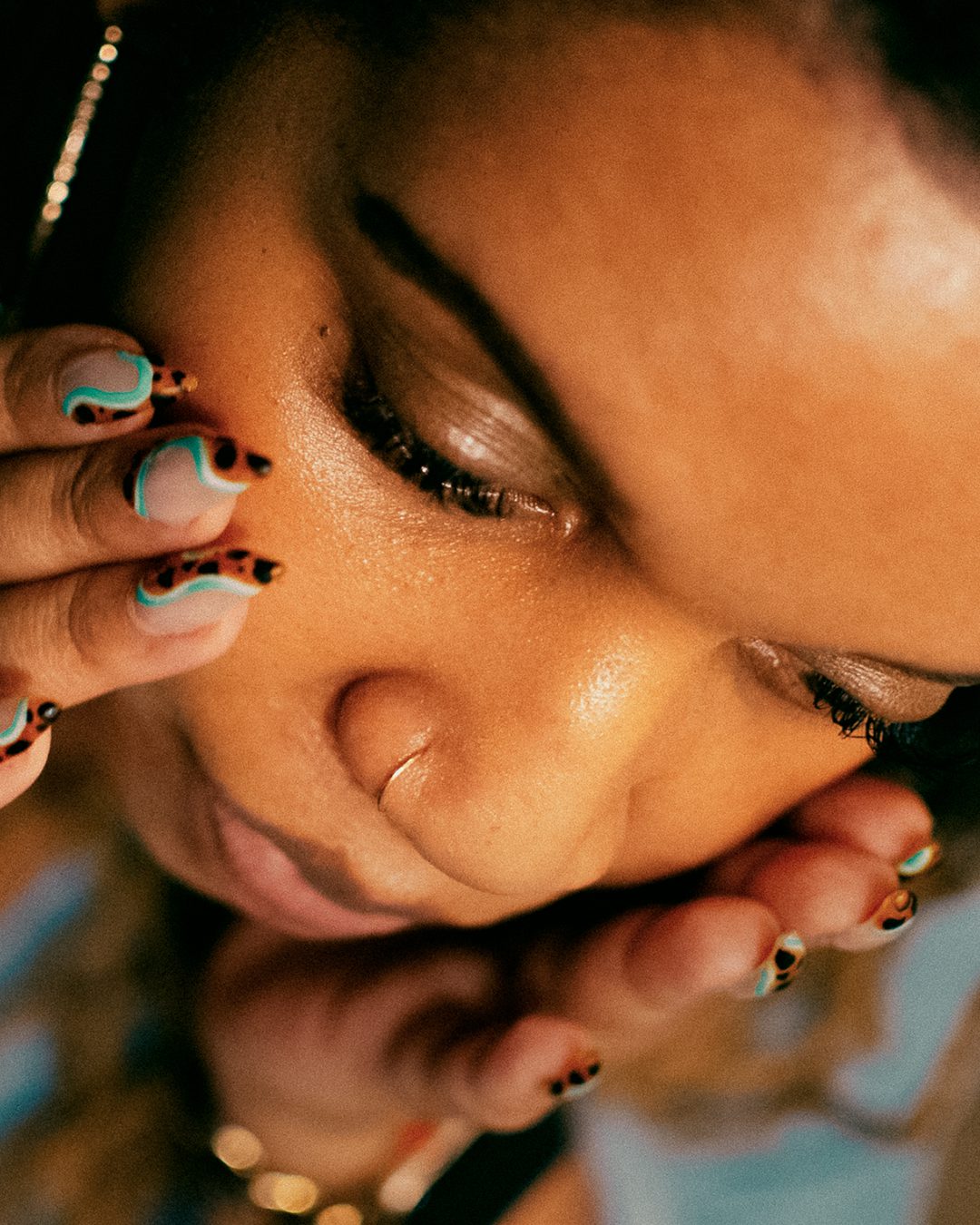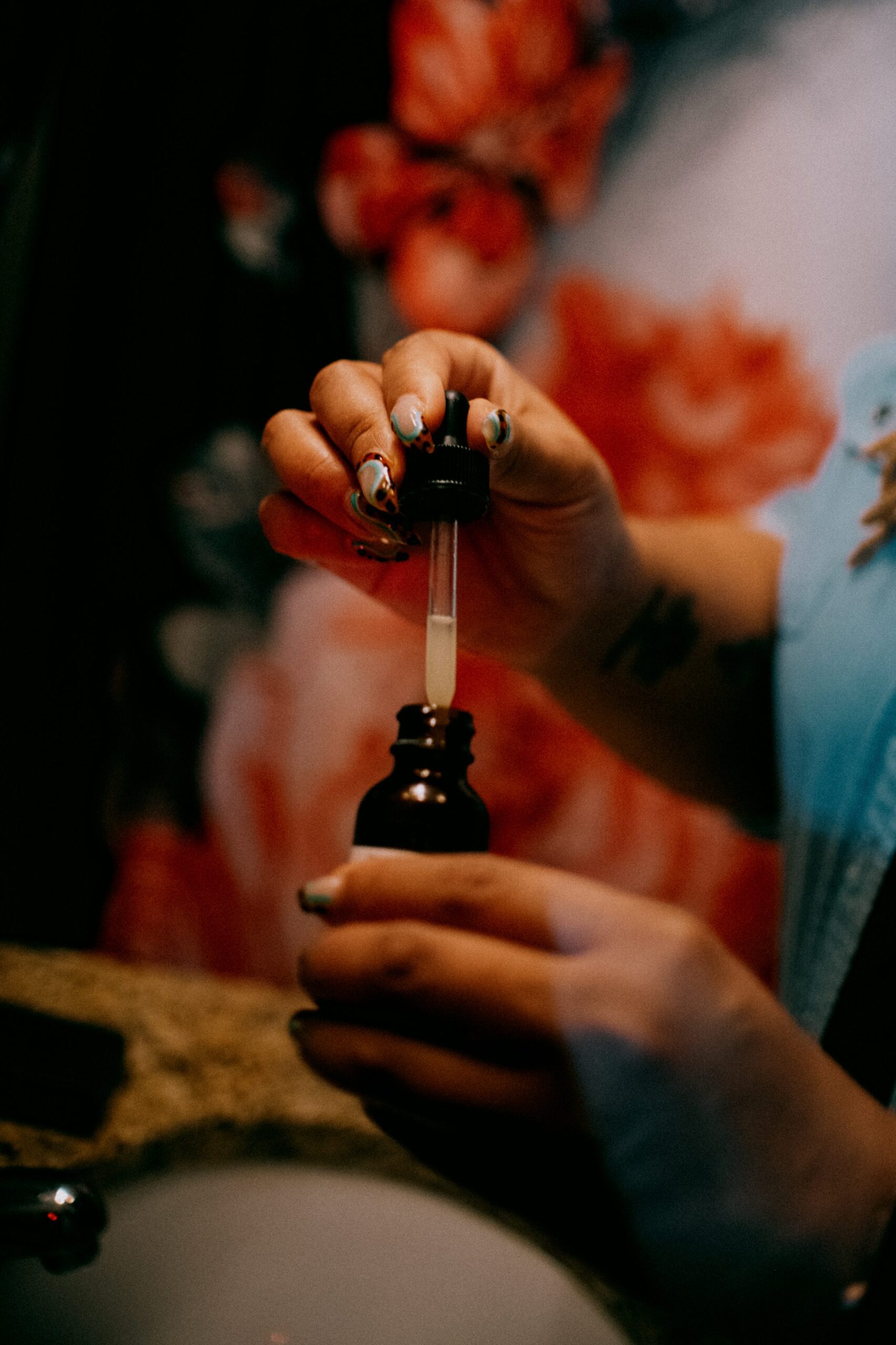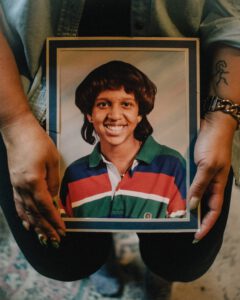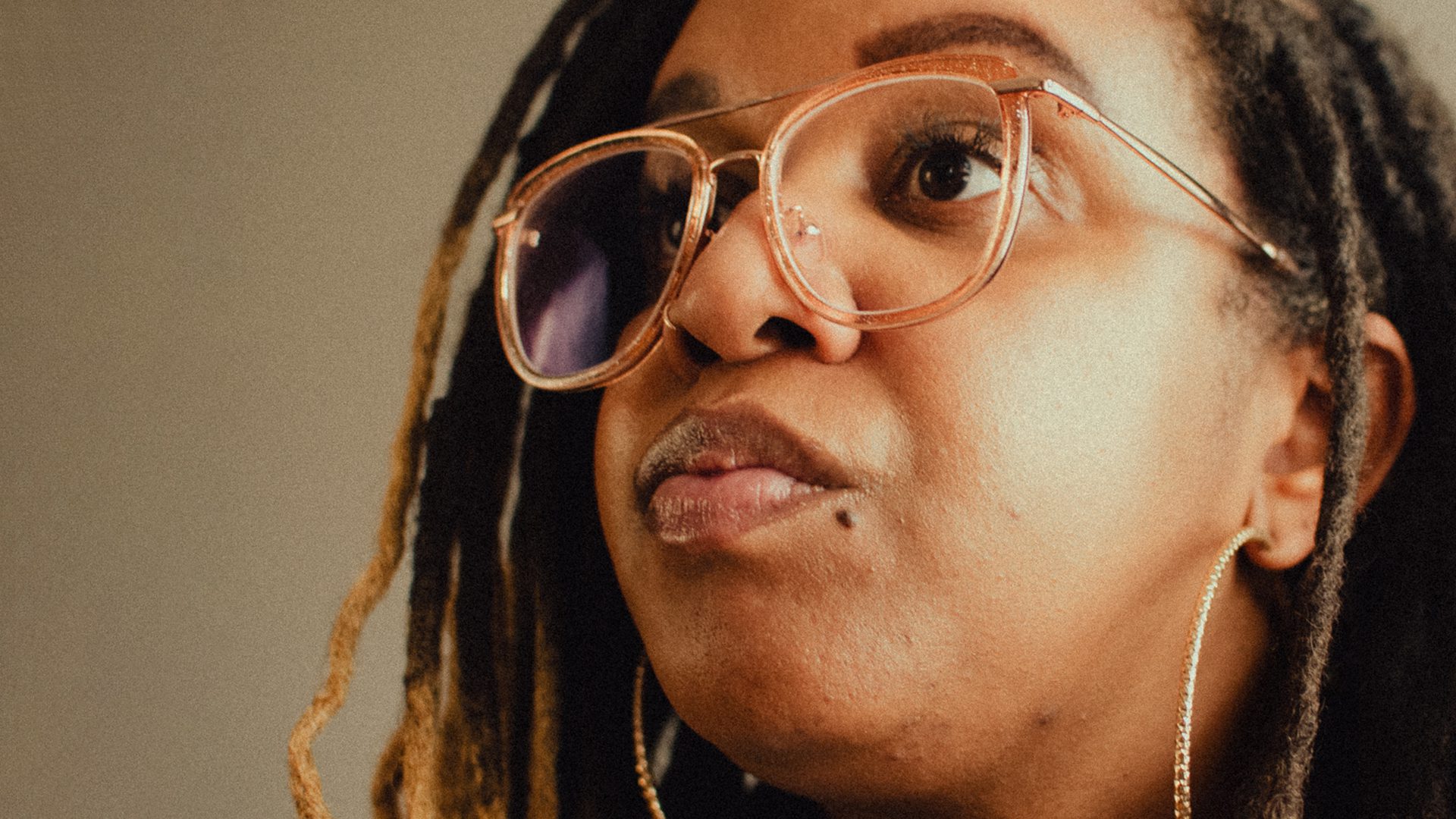Blog editor’s note:This #BlackHistoryMonth, 23andMe employees are discussing the resiliency and joy in the Black and African diaspora. While we reflect on the past, share and recognize Black stories and history, we’re also looking ahead toward the future. This month we’ve curated guest blogs from people who embody that joy, and resiliency and are making that future a reality. Here’s a personal story about how a lack of Black dermatologists can impact Black patients.
By Shakeia Taylor
If I had to guess, I’d say I’ve spent most of my life on a quest for perfect skin: even, dewy, and smooth. For a good chunk of my preteen and early teenage years I dealt with acne scars. “Stop picking,” my mom would say, as she swatted my hand from my face. No matter how many times she reminded me that touching my face would not make my skin clear up any faster, I’d find my fingers drawn to the offending dark spots
My cheeks. My forehead. Right between my eyebrows. Acne was always present for me in those spots. I’d try to wear my hair in ways that concealed it. I’d wear it in giant bangs, only to end up distressed because it’s not practical to cover your face with your hair for a school day.
I was extremely self-conscious about my face once I started to develop acne and scarring in elementary school. It was the 90’s and clear skin was marketed to teens as a way to be cool. There were ads for products specifically for teenage skin on television all the time. One new skincare brand even used celebrities for its campaigns.Whenever the ads and infomercials came on, especially while I was watching with other people, I would feel embarrassed. I certainly didn’t want my skin’s shortcomings to be a focus, but sometimes they were. When someone disagreed with me, or wanted me to know they weren’t fond of me, they would joke about my acne and blemishes . It felt like my skin was my sin.I often wondered if it was possible for one of those products to be my salvation.
 Medical distrust and mistreatment
Medical distrust and mistreatment
But finding treatment for skin problems for someone who isn’t white is difficult and discouraging. Many doctors aren’t trained in identifying how some skin issues can appear on black and brown skin. Illustrations and demonstrations typically use white skin, which makes it difficult for doctors to recognize maladies and treat darker skin. Medications and other treatments aren’t always tested on Black and brown skin, therefore the impacts and effects can sometimes be unknown. There are also very few Black dermatologists. Many people of color are aware of this and tend to steer clear of doctors entirely, which could prove fatal – as serious issues like skin cancer could then go undetected and untreated.
My family falls into this category. For years, we’d only go to the doctor when something was seriously wrong . But my mother, determined to fight years of medical distrust, was on a mission to change that. She insisted that we get regular check-ups and schedule appointments the moment something felt or looked off. “What’s the point of insurance,” she’d ask, “if we’re not going to use it?”

Photos by Akilah Townsend
Hoping

Photos by Akilah Townsend
Every morning I’d wake up extra early before school and stare in the mirror hoping some small overnight skin miracle had occurred. I mean, I was drinking water and eating great (if you don’t count that I primarily subsisted on french fries and cheese sauce). When were things going to improve? Finally my mom decided to take me to a dermatologist. She was weary of how much my appearance was distracting me, so she got a recommendation from a trusted co-worker. I’d never heard of anyone we knew going to see a dermatologist before but I knew what they did. I was excited, relieved even, that my parents had finally heard my cries and gotten a recommendation for a dermatologist. I was hopeful my skincare woes would soon be over.
I was sadly mistaken
I remember the day I went to the doctor.. I dressed nice; and I felt ready to learn what it would take to get the clear, smooth skin I deserved. But the dermatologist didn’t calm my fears or my irritated skin that day. She picked and poked at my face. She squeezed blackheads. Ouch. She inquired about what products we use for laundry, skin care, and hair care. She discovered that I was allergic to coconut oil, an ingredient commonly found in Black hair care products, and suggested I find alternatives. I was prescribed two tubes of creams; one of which was retinol. Though my face was sore from all the poking, I was still hopeful because we had a plan! And I had prescriptions to pick up!
Losing Trust
The prescription ointments impacted me immediately. After using them, my skin became dry, red, swollen, and blistered. My cheeks looked as if they had been burned. . Then the redness turned into black, blue, and purple scabs. It was a nightmare. I somehow looked worse than I did before the appointment. I cried. I was miserable. Not only did I look horrible but my face burned. It stung to wash it. It hurt to sleep with my face against a pillow. I felt ugly and let down. Going to the dermatologist was supposed to make things better, not worse. I asked my mom to let me stay home so as not to endure any further teasing about my skin.
In a follow-up appointment we learned that maybe my young skin was a little too sensitive for the strength of retinol I had been prescribed. We were told the effects on Black and brown skin weren’t really known so it was trial and error to find out what really worked. My mom decided the doctor had done enough damage and she would take matters into her own hands because what doctor would prescribe a child something so strong. From then on, she bought my skincare from various department store cosmetic brands. She was confident she could make sure I didn’t experience burning skin anymore.
It took a few weeks for my skin to heal completely, but my trust in dermatology took a massive hit, as did my self-esteem. I’ve spent a lot of time being afraid to put anything on my skin out of fear of experiencing a reaction, but also hating it for seemingly being so sensitive and scarring easily.

Finding relief
It’s been more than twenty years since my experience with a dermatologist and the amount of money I’ve spent on both drugstore and department store skincare brands is probably enough to put a child through community college. I’ve purchased every oil and serum. I’ve even tried a few home remedies. I’m not alone – I’ve had many conversations through the years with other Black women who, like me, have trust issues with dermatology.
But now that I’m nearly 40, some of my skincare needs have changed. So I asked my primary care physician for a dermatology referral. After I explained my history, she pointed me to a local research hospital’s ethnic skin care team. This type of culturally competent skin care might have saved me years of avoiding the dermatologist and hiding behind various foundations and concealers. Though my anxiety around seeing a doctor has not gone away entirely, it has been greatly reduced. I have been able to find solutions to problems I thought I’d have to live with for the rest of my life. My eczema has calmed, the number of breakouts I get has decreased, and the dark spots on my face have started to fade. Finding care that treats not only the complaint, but the person, has not only improved my skin but my quality of life.
Shakeia Taylor is a writer and columnist based in Chicago. She is an avid supporter of women in baseball, and an active advocate for diversity in sports journalism.


